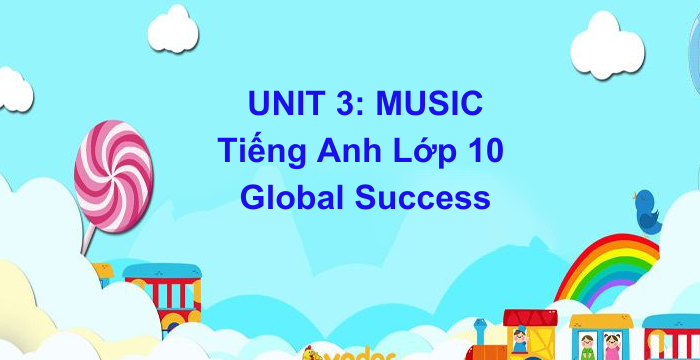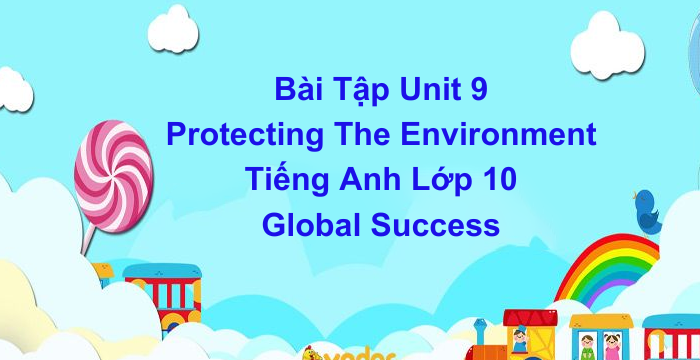Bài Tập Bổ Trợ UNIT 1 FAMILY LIFE Tiếng Anh Lớp 10 Global Success (25.08.2024)
Thầy Thắng
CHUYÊN ĐỀ LỚP 10
15
Ngày đăng: 25-08-2024 15:08:11

UNIT 1 - FAMILY LIFE
I. VOCABULARY
|
STT |
TỪ VỰNG |
PHIÊN ÂM |
TỪ LOẠI |
NGHĨA |
|
1 |
Household chores |
/'haushould tʃɔ:r/ |
n |
- các công việc vặt trong nhà, trong gia đình |
|
2 |
Homemaker |
/ˈhoʊmˌmeɪ.kɚ/ |
n |
- người nội trợ |
|
3 |
Breadwinner |
/ˈbredˌwɪn.ɚ/ |
n |
- người trụ cột trong gia đình |
|
4 |
Equally Equalize Equality |
/'i.kwə.li/ /ˈiː.kwə.laɪz/ /iˈkwɑː.lə.t̬i/ |
adv v n |
- bằng nhau, ngang nhau, như nhau; đều - làm bằng nhau, làm ngang nhau - sự bình đẳng |
|
5 |
Grocery groceries |
/'groʊ.sə.i/ /'grəʊsərɪz/ |
n n |
- cửa hàng tạp hóa - hàng tạp hóa và thực phẩm phụ |
|
6 |
Heavy lifting |
/ˌhev.i 'lɪft.ɪŋ/ |
n |
- công việc nặng nhọc |
|
7 |
Rubbish = Garbage |
/'rʌb.ɪʃ/ /'ga:bidʒ/ |
n |
- đồ bỏ đi, đồ thải (đồ ăn hỏng/thực phẩm bẩn/...) vứt đi vì không thể sử dụng được nữa |
|
Litter |
/'litə(r)/ |
n |
- những mẩu rác nhỏ như giấy/chai/ lọ/lon/... vứt bừa bãi ra nơi công cộng |
|
|
Waste |
/weist/ |
n |
- những chất/nguyên liệu/vật liệu không còn cần đến nữa và bị vứt bỏ (cần được xử lý) |
|
|
8 |
Responsibility Responsible |
/rɪˌspɒnsɪ'bɪləti/ /rɪ'spɒnsəbl/ |
n a |
- trách nhiệm - chịu trách nhiệm |
|
9 |
Gratitude |
/'grætitju:d/ |
n |
- lòng biết ơn, sự nhớ ơn |
|
10 |
Appreciate Appreciation Appreciative Appreciable |
/ə'pri:ʃieit/ /əˌpri:ʃieɪʃn/ /ə'pri:ʃjətiv/ /ə'pri:ʃəbl/ |
v n a a |
- đánh giá đúng, đánh giá cao, hiểu rõ giá trị - sự cảm kích, sự đánh giá - biết đánh giá, biết thưởng thức, khen ngợi - đáng kể, tương đối |
|
11 |
Benefit |
/'benɪfɪt/ |
n v |
- lợi ích - giúp ích cho, làm lợi cho |
|
12 |
Character |
/'kæriktə/ |
n |
- tính nết, tính cách; cá tính, đặc tính, đặc điểm; nét đặc sắc |
|
13 |
Spotlessly |
/'spɔtlisli/ |
adv |
- không một vết nhơ; sạch sẽ, tinh tươm |
|
14 |
Teenager |
/'ti:neiʤə/ |
n |
- thanh thiếu niên |
|
15 |
Value Valuable Invaluable Valueless |
/'vælju:/ /'væljuəbl/ /in'væljuəbl/ /'vælvlɪs/ |
n a a a |
- giá trị - có giá trị lớn, quý giá - vô giá - không có giá trị |
|
16 |
Result |
/ri'zʌlt/ |
n v |
- kết quả - dẫn đến |
|
17 |
Survey |
/'sə:veɪ/ |
n |
- sự khảo sát |
|
18 |
Truthful Truth |
/'tru:θful/ /tru:θ/ |
a n |
- thực, đúng sự thực - sự thật, lẽ phải, chân lý |
|
19 |
Honest Dishonest Honesty |
/'ɔnɪst/ /dis'ɔnɪst/ /'ɔnistɪ/ |
a a n |
- trung thực, chân thật, thật thà - không thành thật, không trung thực - tính trung thực, tính chân thật |
|
20 |
Respect Respectful Respectable Respective |
/rɪs'pekt/ /ri’spektfl/ /rɪ'spektəbl/ /rɪ'spektɪv/ |
n a a a |
- sự tôn trọng, sự kính trọng - lễ phép; kính cẩn, bày tỏ sự kính trọng - đáng trọng, đáng kính, đứng đắn - riêng từng người, riêng từng cái; tương ứng (với vị trí, thứ tự, địa vị...) |
|
21 |
Table manners |
/'teɪbl'mænəz/ |
n |
- phép tắc ăn uống (cách cư xử đúng đắn khi ăn với những người khác) |
|
22 |
Experience Experienced |
/iks'piərɪəns/ /iks'pɪərɪənst/ |
n a |
- kinh nghiệm, trải nghiệm - có kinh nghiệm, giàu kinh nghiệm, từng trải, lão luyện |
II. STRUCTURES
|
STT |
CẤU TRÚC |
NGHĨA |
|
1 |
Does the cooking = Cook (v) |
nấu ăn, nấu nướng |
|
2 |
Help (sb) (to) do sth Help sb with sth |
giúp (ai đó) làm gì giúp ai đó với cái gì |
|
3 |
Divide sth into |
chia cái gì thành |
|
4 |
Do the chores |
làm việc nhà |
|
5 |
Earn/make money |
kiếm tiền |
|
6 |
Shop for sth |
mua sắm thứ gì |
|
7 |
Do the laundry |
giặt đồ, giặt quần áo |
|
8 |
Do the washing-up |
rửa bát |
|
9 |
Put out |
đổ rác, dập lửa |
|
10 |
Instead of |
thay vì |
|
11 |
Support family |
hỗ trợ/nuôi sống gia đình |
|
12 |
Pick up sb Pick up sth |
đón ai đó nhặt cái gì lên |
|
13 |
Ask sb to do sth |
yêu cầu ai đó làm gì |
|
14 |
Be good at sth/doing sth Be good for sb/sth |
giỏi cái gì/làm gì tốt cho ai, tốt cho cái gì |
|
15 |
Take responsibility for sth |
chịu trách nhiệm cho điều gì |
|
16 |
Try to do sth Try doing sth |
cố gắng làm gì đó thử làm gì đó |
|
17 |
Enjoy doing sth |
thích làm gì đó |
|
18 |
In addition = Moreover = Furthermore = Besides |
ngoài ra, bên cạnh đó |
|
19 |
Strengthen one’s bonds |
củng cố mối quan hệ |
|
20 |
All in all |
nói chung, nhìn chung |
|
21 |
Encourage sb to do sth |
khuyến khích ai đó làm gì |
|
22 |
Teach sb to do sth |
dạy ai đó làm gì |
|
23 |
Take care of = Look after |
quan tâm, chăm sóc |
|
24 |
Grow up |
lớn lên |
|
25 |
Agree with sb |
đồng ý, đồng tình với ai đó |
|
26 |
Be useful for sth |
có lợi, có ích cho cái gì |
|
27 |
Cheer sb up |
cổ vũ ai, làm cho ai đó tươi tỉnh lên |
|
28 |
Carry on |
tiếp tục |
|
29 |
Share sth with sb |
chia sẻ cái gì với ai |
|
30 |
Make a list of |
lập danh sách cái gì |
|
31 |
At the end of sth In the end |
cuối của cái gì cuối cùng |
|
32 |
Spend time doing sth |
dành thời gian làm gì đó |
|
33 |
Prepare sb for sth |
chuẩn bị cho cái gì |
|
34 |
Show respect to sb |
tỏ sự kính trọng với ai |
|
35 |
Have a wealth of sth |
có nhiều cái gì đó |
|
36 |
Crash sth into sth |
đâm cái gì vào cái gì đó |
|
37 |
Be on business |
đi công tác |
III. GRAMMAR (Present simple vs present continuous)
|
Thì động từ |
Cách dùng |
Công thức |
Từ nhận biết |
|
|
Present simple tense (Thì hiện tại đơn) |
- diễn tả hành động thường xuyên xảy ra. - diễn tả thói quen. - diễn tả thời gian biểu, lịch trình, thông báo. - diễn tả sự thật, chân lý - diễn tả nghề nghiệp, sở thích, nguồn gốc, bình phẩm. |
V (bare): I/số nhiều V V (s/es): số ít S + V am: I be is: số ít are: số nhiều Thành lập phủ định và nghi vấn: * V (do/does): (-): S + do/does + not + V(bare) (?): Do/does + S + V(bare)? * Be (am/ is/ are): (-): S + am/is/ are + not + ……… (?): Am/Is/Are + S + ………? |
- seldom/ rarely /hardly - sometimes/ occasionally - often/ usually/ frequently - always/ constantly - ever - never - every |
|
|
Present continuous tense (Thì hiện tại tiếp diễn) |
- diễn tả hành động đang xảy ra tại thời điểm nói. - diễn tả hành động sẽ xảy ra trong tương lai (có kế hoạch từ trước). - diễn tả sự thay đổi của thói quen. - diễn tả sự ca thán, phàn nàn. |
S + am/is/are + Ving Thành lập phủ định và nghi vấn: (-): S + am/is/are + not + V-ing (?): Am/Is/Are+ S + V-ing? |
- now - at the moment - at present - right now - look /hear (!) |
|
IV. PRACTICE EXERCISES
A. PHONETICS
Mark the letter A, B, C, or D to indicate the word whose underlined part differs from the other three in pronunciation in each of the following questions.
1. A. character B. chores C. children D. check
2. A. bread B. create C. tread D. threaten
3. A. homemaker B. clothes C. close D. bond
4. A. teach B. teenager C. connection D. appreciate
5. A. waste B. value C. damage D. gratitude
Mark the letter A, B, C, or D to indicate the word that differs from the other three in the position of primary stress in each of the following questions.
1. A. household B. family C. laundry D. afraid
2. A. divide B. rubbish C. heavy D. equal
3. A. manage B. prepare C. housework D. breakfast
4. A. favourite B. develop C. encourage D. important
5. A. experience B. gratitude C. benefit D. honesty
B. VOCABULARY
Mark the letter A, B, C, or D to indicate the word(s) CLOSEST in meaning to the underlined word(s) in each of the following sentences.
1. Children learn how to respect older people, who have a wealth of life experiences.
A. abundance B. resource C. property D. fortune
2. Doing chores also helps develop children's gratitude to their parents because they understand how hard their parents try every day for their family life.
A. approval B. honour C. thankfulness D. responsibility
3. When doing housework, children may learn to appreciate all the hard work their parents do around the house for them.
A. be responsible for B. be grateful for
C. take account of D. be useful for
4. Parents should encourage their kids to share the housework for their own good as well as the good of the whole family.
A. comfort B. respect C. appreciate D. stimulate
5. Sometimes adults think children may break or damage things when they do housework.
A. destroy B. lose C. suffer D. gain
Mark the letter A, B, C, or D to indicate the word(s) OPPOSITE in meaning to the underlined word(s) in each of the following sentences.
1. Life skills such as cooking, cleaning or taking care of others are really necessary for kids when they grow up.
A. certain B. unavoidable C. nonessential D. inevitable
2. Family is always the most valuable thing in one’s life.
A. worthless B. helpful C. beneficial D. precious
3. His parents' encouragement and trust give him strength to carry on.
A. put out B. go by C. try on D. give up
4. Results of a recent survey show that even though modern family life has changed greatly, a number of traditional family values are still important nowadays.
A. up-to-date B. modern C. ancient D. latest
5. It is said that British people still follow some traditional family values now.
A. modern B. standard C. conventional D. unusual
Give the correct forms of words in brackets.
1. In our family, we divide the housework (EQUAL) ______; my mum cooks; my dad does the washing up and I clean the house.
2. Most people think that housework is boring and is the (RESPONSIBLE) ______ of mothers and wives only.
3. It's crucial that doing chores together help (STRONG) ______ family bonds and create moments between children and parents.
4. Everyone feels happy and proud when we see our home (SPOT) ______ clean at the end of the day.
5. Family (VALUABLE) ______ are ideas about how people want to live their family life and are passed on from parents to children.
Mark the letter A, B, C, or D to indicate the correct answer to each of the following sentences.
1. My mother often does the ______ in the evening before bedtime so that clothes are ready for the next morning.
A. heavy lifting B. cooking C. laundry D. cleaning
2. In a family, mothers often are ______ because they manage homes and raise children instead of earning money.
A. homemakers B. breadwinners C. household chores D. housekeepers
3. Sometimes my sister helps to shop ______ groceries.
A. in B. on C. with D. for
4. She is a ______ young woman from a good family. She has helped many poor people by teaching them how to earn money safely.
A. respect B. respectful C. respectable D. respective
5. She often helps her mother ______ the washing-up and cooking.
A. to B. with C. on D. for
6. In the afternoon, I have my parents ______ my daughter because I get home late after work.
A. pick up B. put out C. grow up D. carry on
7. I forgot to ______ the rubbish this morning.
A. put off B. put on C. put out D. put up with
8. When I was a small girl, my mother used to allow me to collect ______ such as empty cans, used papers to sell.
A. rubbish B. litter C. waste D. garbage
9. Children rarely show any ______ for what their parents do for them.
A. appreciate B. appreciation C. appreciative D. appreciable
10. Sharing household chores is ______ for children because it helps them recognize that what they do will support their parents a lot.
A. respective B. useless C. good D. responsible
11. Parents should always teach their children to ______ to old people.
A. show respect B. spend time C. take care D. cheer up
12. ______, she decided to choose a local university because she wanted to be close to her family.
A. At the end B. All in all C. Besides D. In the end
13. Although children do not enjoy doing housework, they have to try ______ their tasks.
A. finish B. to finish C. finishing D. finished
14. Sharing housework strengthens the family ______ for many reasons.
A. bonds B. reunion C. members D. crashes
15. When children know how to do housework, they know to ______ responsibility.
A. have B. make C. take D. get
Fill in the blanks with suitable prepositions.
1. We often divide housework ______ small tasks such as washing up, cooking and cleaning to finish each day.
2. My mother is the one who shops ______ food every day because she’s at home.
3. In his family, his father is as good ______ cooking as his grandmother.
4. My brother and I take responsibility ______ doing the laundry while my mother cooks and my father does the gardening.
5. Sharing the housework is useful ______ strengthening the family’s bond. Everyone understands the importance of family.
Mark the letter A, B, Cor D to indicate the underlined part that needs correction in each of the following questions.
1. Instead sitting on the sofa and watching TV, he cleans the floor while listening to the news.
A B C D
2. My parents always ask my grandpa pick up me from school in the afternoon.
A B C D
3. When I was a small girl, I often tried helping my mother with the housework when she was busy.
A B C D
4. I have never met a lady who enjoys do the housework better than my sister.
A B C D
5. In all, family is always the most important thing for each person.
A B C D
6. Old people need to be taken care as much as the kids.
A B C D
7. She was born and grew in a peaceful mountainous province.
A B C D
8. She doesn't go to work, but stays at home to look at the family.
A B C D
9. In the end of the day, all family members sit in the living room and talk about their days.
A B C D
10. He called me in a hurry because he crashed his car to a tree.
A B C D
C. GRAMMAR
Give the correct forms of the verbs in brackets.
1. What time this train (leave) ______ for Hanoi in the afternoons, Dad?
2. I often (have) ______ breakfast at 7 a.m in the morning.
3. This knife (not cut) ______ very well. It (not be) ______ sharp enough.
4. - You (like) ______ reading books?
- Yes, I do. I’m really into fiction books.
5. My mother usually (get up) ______ in the morning to prepare breakfast for my family.
6. The school year (begin) ______ in early September and (end) ______ in May.
7. Don’t call Mary now. She (have) ______ an important exam now.
8. Mrs Brown (go) ______ on holiday in Hawaii next week. She has already booked a flight ticket.
9. Linda often goes to school by bus, but she (ride) ______ her bike today.
10. Tom always (come) ______ late. This makes his boss very angry.
11. We can go out now. It (not rain) ______ .
12. Who (cook) ______ in the kitchen, Mary?
D. SPEAKING
Mark the letter A, B, C or D to indicate the sentence that best completes each of the following exchanges.
1. Nam is talking to Minh on the phone.
Nam: I'm going to play football this evening. Are you free to join us?
Minh: ______
A. I'd love to but I’m afraid I can’t. B. I have no idea.
C. I love being free. D. Yes. I have free time in the afternoon.
2. Nam is asking Minh.
Nam: Who is preparing dinner?
Minh: ______
A. My mum loves cooking. B. My mum is doing it.
C. My mum never cooks. D. My mum prepares it before going out.
3. Lan is talking to Hoa.
Lan: Does your sister help with the housework?
Hoa: ______.
A. Definitely not. She is busy. B. Yes, she will.
C. No. She sometimes studies. D. She usually goes to work by car.
4. Hoa is asking Lan about the household chores.
Hoa: How do you divide the household chores in your family?
Lan: ______
A. My dad divides it.
B. My family does it every day.
C. My mum cooks and I clean the house.
D. My mum and dad make us the breadwinner.
5. Minh and Nam are talking about household chores.
Minh: Does your mum do the washing-up?
Nam: ______.
A. Yes, she did. B. Yes, she will help.
C. No, she does. D. No, she doesn't.
E. READING
Read the following passage and mark the letter A, B, C, or D to indicate the correct word or phrase that best fits each of the numbered blanks.
What is tiger parenting?
Tiger parenting is a strict parenting style that pushes children to excel academically at all (1) ______ . Specifically, tiger parents tend to micromanage their children’s lives in ensuring they meet their high expectations. There is little to no (2) ______ for the child to negotiate how their days are planned as the tiger parent will respond in a "because I said so" manner. Tiger parenting enforces (3) ______ rules and gives full control to the parent. There is a power differential between the parent and the child that prevents open and honest conversations. Respect is a one-way street and there is no reward for positive behavior, only discipline for negative behavior. Children (4) ______ grew up with tiger parents lack a nurturing and loving environment. Overly strict and punitive parenting styles may cause children poor outcomes (5) ______ increasing risks of anxiety, low self-esteem, depression, or even selfharm. Furthermore, tiger parenting can result in poor social skills. (6) ______ , when a child is prevented from playing with peers in favor of studying, they may (7) ______ out on opportunities to socialize and establish meaningful relationships. We learn to parent in response to what we have experienced ourselves growing up, from our own parents. Family patterns can be passed on, (8) ______ parenting styles and childhood trauma. Encourage reflection: What was helpful for you from your parents growing up? What was not as helpful even if your parents were well-intentioned? How did you feel, and how would you like your children to feel? Acknowledge how hard, challenging, uncomfortable, and strange it can be to (9) ______ things differently. Acknowledge how our parents did the best they could with what they knew, and as we know better, we can do better. Encourage compassion with yourself as you try doing things differently with different results for your relationship with your child. Provide support for parents who have the courage to try a new and different way of interacting (10) ______ their children that will hopefully be helpful and healing for all.
(Adapted from https://www.verywellmind.com/)
1. A. costs B. prices C. expenses D. values
2. A. field B. place C. room D. space
3. A. much B. many C. little D. any
4. A. which B. that C. whose D. who
5. A. except B. besides C. excluding D. such as
6. A. Because B. Similarly C. For example D. Therefore
7. A. lack B. lose C. miss D. achieve
8. A. including B. containing C. comprising D. involving
9. A. avoid B. approach C. address D. solve
10. A. to B. for C. with D. at
Read the following passage and mark the letter A, B, C, or D to indicate the correct answer to each of the questions.
When it comes to marriage the timing is not the same for everyone. Although society usually puts pressure on individuals to get married and start a family early, over the years, people have had many reasons to get married later in life. All over the world, people of all genders have more access to higher education now than ever. This results in people choosing to focus on their careers and delaying marriage. Also, the fact that many young people start living alone at an early age makes them develop high levels of independence. As a result, they do not see the need to commit to a partner. Women in particular no longer feel the urge to get married fast. They instead spend more of their youthful days pursuing opportunities to become more financially independent.
Financial stability is also a factor. A lot of people in their twenties are not financially stable enough to run a home and fulfill the responsibilities that come with starting a family - after all, simply organizing a wedding is already quite an expensive effort. That much financial pressure can be detrimental to most relationships. As a result, many people decide to wait until they are financially ready before tying the knot. Nowadays, many couples prefer to live together before getting married, which provides an opportunity to experience marriage life without commitment and to figure out whether they really suit each other. This is especially made possible as a modern society now accepts these sorts of living arrangements
(Adapted from THE SCHOOL OF LIFE)
11. What is the passage mainly about?
A. Marriage can be postponed. B. Happier life after marriage
C. Is it a terrible thing to marry young? D. Choosing the best time
12. The word "they” in paragraph 1 refers to ______.
A. independence B. young people
C. education D. genders
13. The word "run" in paragraph 2 is closest in meaning to ______.
A. race B. manage C. move D. control
14. According to the passage, young women to ______.
A. have easier access to all levels of schooling than ever before
B. used to believe they had to marry someone fast
C. believe marriage will hurt their financial independence
D. are better at seeking opportunities than males
15. Which of the following statements is NOT TRUE, according to the passage?
A. Living together before marriage is considered acceptable in modern society.
B. Most people choose not to marry because weddings are pricey.
C. Many young individuals do not earn enough to support a marriage.
D. The optimal moment to marry is not the same for everyone.
UNIT 1 - 15-MINUTE TEST
Mark the letter A, B, C, or D to indicate the correct answer to each of the following sentences.
1. As a part of my job, I ______ abroad a lot, so I need to improve my English.
A. am travelling B. travel C. travels D. is travelling
2. He ______ from Italy but he ______ in England at the moment.
A. come - is studying B. comes - studies
C. is coming - studies D. comes - is studying
3. John ______ English but not much.
A. speaks B. speak C. is speaking D. are speaking
4. Don’t bother me now. I ______ an important letter.
A. writes B. write C. am writing D. is writing
5. Jane ______ at her mother’s house this week because she ______ her house painted.
A. is sleeping - is having B. sleeps - has
C. sleeps - is having D. is sleeping - has
6. Why ______ you ______ early tomorrow morning?
A. do - leave B. does - leave C. am - leaving D. are - leaving
7. In the afternoons, they ______ out with their classmates and ______ to practise English as much as possible.
A. goes - tries B. go - try
C. is going - is trying D. are going - are trying
8. The son ______ about his mother. He hardly ever ______ her.
A. is thinking - visits B. is thinking - is visiting
C. thinks - visits D. think - visit
9. The minibus, which takes people to the other side of the island, ______ at 11:00 am and ______ at 6:00 pm.
A. is leaving - is returning B. is leaving - returns
C. leaves - returns D. leaves - is returning
10. We ______ our clients at 9:00 pm tomorrow.
A. is meeting B. meets C. meet D. are meeting
11. She often helps ______ the cooking. But she can’t help today.
A. to B. with C. for D. of
Find the sentence having the same meaning.
12. John never stops criticizing my friends.
=> _________________________________________.
A. John always criticizes my friends.
B. John hardly ever criticizes my friends.
C. John seldom stops criticizing my friends.
D. John is criticizing my friends.
13. Jack has found a job in a supermarket for this summer.
=> _________________________________________.
A. Jack finds a job in a supermarket for the summer.
B. Jack is working in a supermarket this summer.
C. Jack works in a supermarket in the summer.
D. Jack is finding a job in a supermarket this summer.
14. In Vietnamese families, dads are usually ______. They earn money for their families.
A. housekeepers B. homemakers C. cooks D. breadwinners
15. My mother asked me to do the washing-up and ______ the rubbish.
A. take out B. turn up C. cut down D. crash into
UNIT 1 - 45-MINUTE TEST
Mark the letter A, B, C, or D to indicate the word whose underlined part differs from the other three in pronunciation in each of the following questions.
1. A. damage B. taking C. dad D. trash
2. A. create B. care C. encourage D. appreciate
Mark the letter A, B, C, or D to indicate the word that differs from the other three in the position of primary stress in each of the following questions.
3. A. football B. money C. divide D. children
4. A. grocery B. important C. family D. homemaker
5. A. responsible B. gratitude C. character D. benefit
Mark the letter A, B, C, or D to indicate the word(s) CLOSEST in meaning to the underlined word(s) in each of the following sentences.
6. When doing housework, they learn to appreciate all the hard work their parents do around the house for them.
A. feel sensitive to B. be aware of C. feel grateful for D. sympathize with
7. Parents should encourage their kids to share the housework with other family members so that they learn to take responsibility.
A. stimulate B. dispirit C. persuade D. prevent
Mark the letter A, B, C, or D to indicate the word(s) OPPOSITE in meaning to the underlined word(s) in each of the following sentences.
8. John's parents always listen to him and cheer him up whenever he has troubles.
A. inspire B. enhance C. brighten D. discourage
9. Everyone should have the basic life skills to be an adult.
A. fundamental B. inessential C. vital D. elementary
Mark the letter A, B, C, or D to indicate the correct answer to each of the following sentences.
10. Life skills such as cooking, cleaning or ______ others are really necessary for kids when they grow up.
A. taking care of B. cleaning up C. cheering up D. carrying on
11. My mother ______ for food every morning but today she ______ at home.
A. is shopping - is cooking B. is shopping - cooks
C. shops - is cooking D. shops - cooks
12. Some women ______ to work, but ______ at home to look after their families.
A. doesn't go - are staying B. don’t go - stay
C. aren’t going - stay D. aren’t going - are staying
13. In my family, the household chores are divided ______ to every member.
A. equal B. equality C. unequal D. equally
14. Dad and children should help ______ the cooking when mums are busy.
A. with B. to C. on D. for
15. Mr Brown is the ______ of the family, but he still helps his wife with the housework whenever he has time.
A. homemaker B. decision-maker C. breadwinner D. cook
16. Her children ______ the cooking while her husband ______ the house.
A. do - tidy up B. are doing - is tidying up
C. are doing - tidies up D. do - is tidying up
17. Most people think that housework is boring and is the ______ of wives and mothers only.
A. responsible B. irresponsible C. responsibly D. responsibility
18. Children know that they have to try ______ their household chores even though they do not enjoy doing them.
A. to finish B. finish C. finishing D. finished
19. ______, doing chores together helps strengthen family bonds, creating special moments between children and parents.
A. In the end B. In addition C. Instead D. In addition to
20. I don't think playing too much is ______ children.
A. good for B. good at C. useless for D. helpless for
21. My sister’s task is ______ the rubbish after dinner and she always complains about that.
A. putting out B. making up C. turning on D. getting up
22. Helping parents with the housework makes children to ______ special moments between them.
A. creation B. creative C. create D. creativity
Mark the letter A, B, C or D to indicate the underlined part that needs correction in each of the following questions.
23. All in all, doing housework helps bringing a lot of benefits for children; for example.
A B C
teaching them life skills and building their character.
D
24. His parents try to spend more time talk with him because they want him to be happy.
A B C D
25. The old people who have a wealthy of life experiences can give us a lot of advice.
A B C D
READING
Read the following passage and mark the letter A, B, C, or D to indicate the correct word or phrase that best fits each of the numbered blanks from 26 to 30.
Family life is an important aspect of our well-being. When we have strong relationships with our relatives, we (26) ______ to be happier and healthier. Being part of a family also provides a sense of (27) ______ . Research has shown that children who grow up in families with strong parent-child (28)______ tend to do better in school, be more resilient, and experience fewer behavioral problems. Unfortunately, family life can also be challenging. Conflict and relationship problems can cause stress and impact mental health. Changes in family structure, (29) ______ divorce or remarriage, can be particularly challenging for children.
It's important to invest time and effort in building and maintaining strong relationships. Spending quality time with family members, engaging in activities together, and showing appreciation toward each other can help build strong family bonds. The benefits of a strong family life are (30) ______ and can contribute to our overall well-being.
(Source: https://www.psychologytoday.com)
26. A. intend B. tend C. pretend D. attend
27. A. belonging B. humour C. purpose D. happiness
28. A. friendships B. bonds C. partnerships D. fellowships
29. A. in addition B. in contrast C. for instance D. such as
30. A. essential B. tiny C. numerous D. small
Read the following passage and mark the letter A, B, C, or D to indicate the correct answer to each of the questions from 31 to 35.
When your child was younger, your role was to lay the foundations for his behaviour. For example, you probably showed your child how to cooperate and take turns with others. Now your child is in his teens, he can start taking responsibility for his own behaviour. But you're still an important role model.
What you do shows your child how you want her to behave. For example, how you cope with feelings like frustration and distress influences how your child regulates her emotions. What you eat, how much you exercise, and how you look after yourself all influence your child. What you say is also important. You can help your child to manage and control his behaviour by talking about how behaviour affects other people. You can also talk more with your child about the differences between right and wrong. Now's a good time for this because your child is developing his ability to understand other people's experiences and feelings.
You might think that your child's peers and friends have a stronger influence in the teenage years than you do. Friends and peers do influence your child, but so do you - it's just that peer influence is different from your influence. Your child’s friends are more likely to influence everyday behaviour, like the music your child listens to or the clothes he wears. As a parent, you influence your child’s basic values, like religious values, and issues related to her future, like
educational choices. And the stronger your relationship with your child, the more influence you’ll have. That's because your child values your good opinion, advice and support. In fact, it’s likely that when your child becomes a young adult, he’ll end up with values, beliefs and behaviour that are similar to yours.
(Adapted from https://raisingchildren.net.au/)
31. Which of the following could be the main topic of the passage?
A. The differences between the parents' effects and peers’ ones
B. Parents' influence on children
C. How children grow up
D. Parents' responsibilities for children’s behavior
32. The word "regulates” in paragraph 2 is closest in meaning to ______.
A. controls B. manages C. conveys D. expresses
33. The word "this” in paragraph 2 refers to ______.
A. the difference between right and wrong
B. behaviour
C. helping your child
D. talking to your child
34. What is the main distinction between the influence of parents and that of friends?
A. Friends may change children’s daily actions while parents affect their essential values.
B. Friends may affect children's interests whereas parents set up their personalities.
C. Friends may influence children’s choices while parents offer advice and support.
D. Friends' effects on children are greater than those of parents.
35. According to the passage, in which of the following aspects are children NOT affected by parents?
A. education B. beliefs C. passion D. behaviour
Mark the letter A, B, C or D to indicate the sentence that best completes each of the following exchanges.
36. Mary is talking to Peter.
Mary: Are you interested in cooking?
Peter: ______
A. Not really. B. No problem.
C. Not at all. D. I do, too.
37. Mary is talking to Peter.
Mary: I must leave now. I have to prepare dinner.
Peter: ______
A. Why not? B. Don’t worry.
C. I see. D. Just 5 minutes more.
Mark the letter A, B, C or D to indicate the sentence that is closest in meaning to each of the following questions.
38. Doing the housework is the thing that schools cannot fully teach, so it’s important for children to learn them at home.
A. It’s important for children to learn how to do the housework at home and schools can’t teach them fully.
B. It's important for children to learn how to do the housework at home because schools can’t teach them fully.
C. It's important for children to learn how to do the housework at home but schools can’t teach them fully.
D. It’s important for children to learn how to do the housework at home or schools can’t teach them fully.
39. They don't like spicy food so their mother avoids cooking it.
A. Their mother never cooks spicy food because they don't like it.
B. Their mother is cooking spicy food because they don’t like it.
C. Their mother isn’t cooking spicy food because they don’t like it.
D. Their mother always cooks spicy food because they like it.
40. She has decided to shop for some clothes in the supermarket this afternoon.
A. She shopped for some clothes in the supermarket this afternoon.
B. She didn’t shop for some clothes in the supermarket this afternoon.
C. She isn’t shopping for some clothes in the supermarket this afternoon.
D. She is shopping for some clothes in the supermarket this afternoon.
Giải đáp mọi thắc mắc trong đề vui lòng liên hệ Zalo: 034 8371 758
Theo dõi fanpage để cập nhật nhanh các bài tập và đề kiểm tra mới nhất.
https://www.facebook.com/profile.php?id=61555984765050
Bài Viết Liên Quan

Bài Tập Unit 4 For A Better Community Tiếng Anh Lớp 10 Global Success (09.12.2024)

Bài Tập Bổ Trợ UNIT 1 FAMILY LIFE Tiếng Anh Lớp 10 Global Success (17.10.2024)

Bài Tập Bổ Trợ Unit 2 Humans And The Environment Tiếng Anh Lớp 10 Global Success (17.10.2024)

Bài Tập Bổ Trợ Unit 2 Humans And The Environment Tiếng Anh Lớp 10 Global Success (03.10.2024)

Bài Tập Bổ Trợ UNIT 1 FAMILY LIFE Tiếng Anh Lớp 10 Global Success (03.10.2024)

Bài Tập Bổ Trợ UNIT 1 FAMILY LIFE Tiếng Anh Lớp 10 Global Success (03.10.2024)

Bài Tập UNIT 5 INVENTIONS Tiếng Anh Lớp 10 Global Success (08.06.2024)

Bài Tập Unit 4 For A Better Community Tiếng Anh Lớp 10 Global Success (07.06.2024)

Bài Tập Unit 3 Music Tiếng Anh Lớp 10 Global Success (31.05.2024)

Bài Tập Unit 2 Humans And The Environment Tiếng Anh Lớp 10 Global Success (30.05.2024)

Bài Tập Unit 1 Family Life Tiếng Anh Lớp 10 Global Success (21.05.2024)

Bài Tập Unit 9 Protecting The Environment Tiếng Anh Lớp 10 Global Success (10.04.2024)

Bài Tập Unit 9 Protecting The Environment Tiếng Anh Lớp 10 Global Success (07.04.2024)

Bài Tập Unit 9 Protecting The Environment Tiếng Anh Lớp 10 Global Success (2.04.2024)

Bài Tập Unit 7 Viet Nam And International Organisations Tiếng Anh Lớp 10 Global Success 20.02.2024

Bài Tập Unit 7 Viet Nam And International Organisations Tiếng Anh Lớp 10 Global Success

Bài Tập Unit 6 Gender Equality Tiếng Anh Lớp 10 Global Success

Bài Đăng Gần Đây

Đề Cương Ôn Tập Giữa Học Kì 2 Tiếng Anh Lớp 7 Global Success (24.02.2026)

Đề Kiểm Tra Giữa Kì 2 Tiếng Anh Lớp 7 Global Success (3.2.2026)

Đề Kiểm Tra Cuối Kì 1 Tiếng Anh Lớp 10 Global Success (02.01.2026)

Đề Cương Ôn Tập Cuối Học Kì 1 Tiếng Anh Lớp 8 Global Success (30.12.2025)

